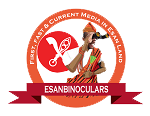AS Nigeria joined the rest of the world to mark this year’s World AIDS Day on 1st December, the National Agency for the Control of AIDS, NACA, has reiterated its resolve and commitment to achieve control of the epidemic towards ending AIDS by 2030.
In a call for action ahead of the WAD, the Director-General of the Agency, Dr Gambo Aliyu, argued that there was an urgent need to equalise access to essential HIV services, particularly for children, pregnant women, key populations and their partners and those who are often forgotten.
In a statement, Aliyu stressed that the theme for this year, “Equalise to End AIDS: Equal Access to Treatment & Prevention Services’’, is clearly a call for action.
His words, “In Nigeria, we are moving closer and closer to our targets. We are certainly proud of the achievements we have made, working together with our partners. Today we have 90 per cent of people who are HIV positive know their status, 98 per cent of these are on HIV treatment and 95 per cent of those on treatment have attained viral suppression.
“Having come this far, we must all now work together to address the inequalities which pose barriers to ending the epidemic.
“Despite the availability of free treatment services, as of today, we still have an unacceptable number of children, less than 15 years, living with HIV who are difficult to find and place on treatment.”
According to the D-G, “We need to equalize access to essential HIV services, particularly for children, pregnant women, key populations and their partners, and those in closed settings who are often forgotten. To do this, we must, in a consistent manner address and remove all structural barriers that impact negatively access to services.
Explaining further, Aliyu said among specific strides made by Nigeria this year to address access issues include a PMTCT mapping to identify all places where women access delivery services in order to find all HIV-positive pregnant women.
“Based on the findings we are working toward expanding the points of service from the current 6,000 to about 40,000 locations identified in the mapping across the 36 states and FCT. Our aim is to find all pregnant women, test all, treat all and report all.
“In addition, to address some of the concerns in access for children, Nigeria has joined the Global Alliance to end AIDS in Children by 2030. The alliance is currently made up of 12 countries that are committed to building momentum to address gaps, mutual accountability, and galvanizing action for results.
“In this regard we will focus on the four pillars of the Alliance which are: early testing and optimized treatment for children, closing treatment gaps for pregnant and breastfeeding women living with HIV, preventing and detecting new infections among adolescent girls and women, and addressing structural barriers that hinder access to services.
“As we step up, the fight to end AIDS, the Federal Ministry of Health, through NASCP, reaffirms its commitment to continue to push for programs and policies aimed at addressing inequalities to access to high-quality HIV testing and treatment services.
Calling on all stakeholders to work together to “Equalize”, Aliyu urged all concerned and partners to remain steadfast and join the drive to tackle stigma and discrimination, and other structural barriers that affect access.











































